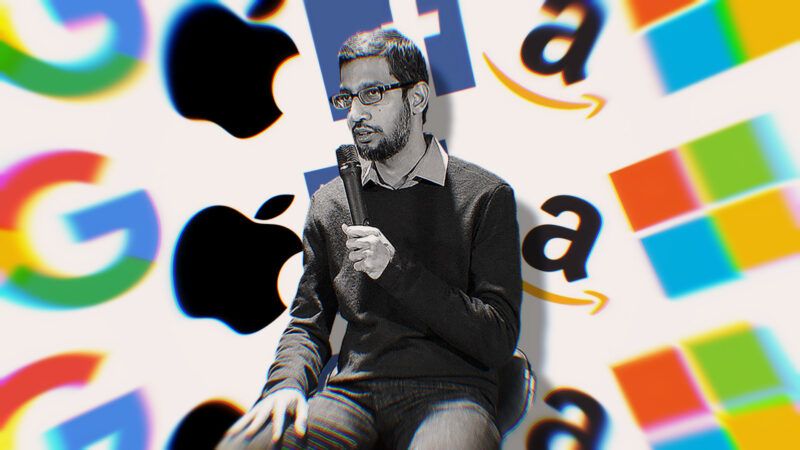Google CEO Sundar Pichai Is Right: Companies That Dominate Today May Be Gone Tomorrow
Today's antitrust activists forget that big companies with significant market share come and go.

In a recent interview with the BBC, Google/Alphabet CEO Sundar Pichai reacted to the recent wave of antitrust sentiment leveled at today's largest tech companies:
I think about are we innovating enough? So that we are relevant 10 years from now, 20 years from now, 30 years from now. And I know the work that goes into to earn that every year, we have to re-earn it and you know if we miss a single trend.
You know, you can go back 10 years ago or 15 years ago and look at the top market cap companies. I'm sure their CEOs were in discussions like this. Some of those companies are not the top companies today.
It's always been true when you look back. So, if anything you're making a case somehow this time will be different. That there are these companies which will somehow always be the most successful companies.
Pichai is right that companies are regularly displaced from their position at the top. The Cato Institute's Ryan Bourne has studied this, using the example of The Great Atlantic & Pacific Tea Company (A&P), which he calls "the Amazon of its day":
The company revolutionized retail, disrupting the grocery sector into the chainstore model that evolved into the modern supermarket. In doing so, it was accused of all the charges currently leveled at Jeff Bezos's tech company. This included accusations it was harming local economies by usurping sole-proprietor retailers, engaging in predatory price cutting, giving preference to its own products over those of rivals within its marketplace, and exacting "unfair" monopsony pressure on wholesalers and suppliers.
Instead of buying from specialty shops, customers could buy from a standardized chain store that consolidated baker shops, butcher shops, and the like under one roof, while buying the rest of the goods in bulk, therefore cutting prices significantly. In the 1920s, A&P had "more stores than its next four chain-store competitors combined." Instead of being celebrated for revolutionizing grocery shopping and delivering cheaper goods to customers than ever before, critics scorned A&P for creating a monopoly through its ability to outperform the competition. Regulators came after the company in the '40s, and competition from other warehouse-like huge grocers, plus a failure to continuously innovate, hobbled the company. From 1915 to 1975, A&P was the largest grocery retailer in the whole country. It went out of business in 2015, and plenty of people alive today have never heard of it, let alone shopped at one of its stores.
Today's Big Tech critics forget that companies with significant market share come and go. "The first big case antitrust enforcers filed against a computing company came in 1969, when the DOJ sued IBM for allegedly monopolizing the 'general-purpose digital computers' market in an anti-competitive way," writes Reason's Elizabeth Nolan Brown. The federal government ended up spending almost $17 million dollars on the case, but "by the time the case was dismissed, technology and market changes had already made the whole thing obsolete. IBM's market power dwindled on its own as conditions evolved and new competitors emerged—no regulatory intervention needed."
The great antitrust push of the 2020s rests on the strange assumption that this sort of creative destruction won't happen, despite the fact that the historical record indicates the opposite.
Woolworth fell, unseated by the world's new suburban Walmarts and Targets. PanAm's routes were taken over by Delta. Nobody gives a shit about AOL anymore. Physical DVD rental at Blockbuster was destroyed first by Netflix's DVD-by-mail operation, then by streaming. Today, Netflix is challenged by Hulu, Amazon Prime Video, HBO Max, and Disney+. Vine didn't have a particularly successful run with millennials, but TikTok has succeeded with Gen Z. Eastman Kodak was crippled by the rise of digital cameras before being obliterated by the advent of the technologically advanced cameras found in iPhones. Companies that were once hard to topple have cratered in the face of fierce competition.
When people have assumed the existing top players will dominate forever, they've been repeatedly proven wrong. This was true in the 20th century, and it's true in the 21st. But today's antitrust crusaders have found a large number of boosters on the left and the right who seem to think this time is different; free marketers who want companies to succeed or fail on their own merit, beware: The regulators are coming.



Show Comments (83)